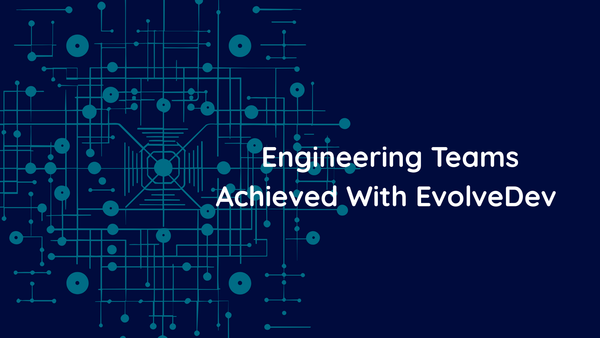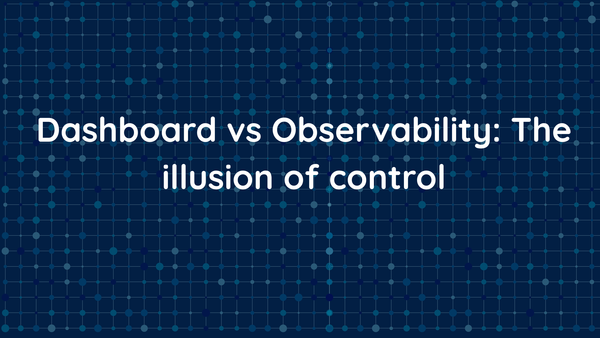Engineering Management in 2025: The Trends I'm Seeing Right Now
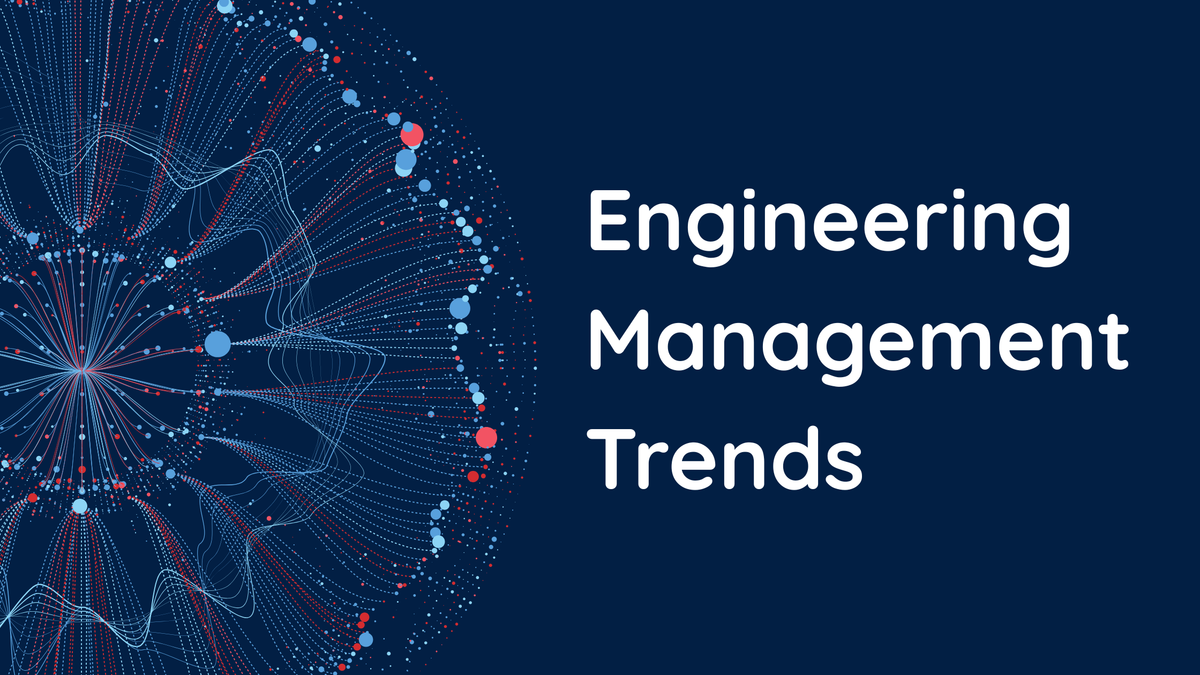
I've been observing how the software engineering landscape is experiencing unprecedented transformation throughout 2024. A recent research surveying hundreds of engineering professionals reveals critical insights into the evolving state of engineering management and the challenges teams are facing as we move into 2025.
A State of Constant Transformation
What I'm seeing as the defining characteristic of engineering management in 2024 is continuous flux. Organizations are grappling with evolving hiring practices, shifting workflows, and the integration of emerging technologies, particularly artificial intelligence. The talent shortage continues to challenge the industry, compounded by ongoing adjustments to post-pandemic work environments and economic volatility.
I believe this period represents a moment where the industry collectively navigates uncharted territory, with teams still determining best practices for modern engineering management.
The Burnout Crisis Demands Attention
I find it concerning that 65% of engineering professionals have experienced burnout over the past year, with variations across different team sizes and organizational roles. I've identified several converging factors that contribute to this alarming trend:
- Persistent understaffing challenges
- Continued adaptation to hybrid work models
- Economic uncertainty is creating additional pressure
- Difficulty replicating the collaborative energy of traditional office environments
In my view, addressing burnout requires acknowledgment before action. Organizations that fail to recognize and discuss these challenges cannot hope to resolve them. I believe engineering leaders must actively engage with their teams, understand their concerns, and work collaboratively toward practical solutions.
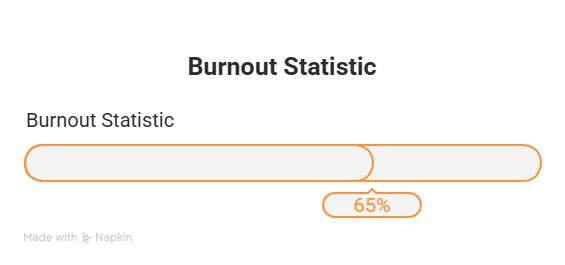
The AI Adoption Gap: Perception vs. Implementation
One of the most striking things I've noticed from 2024 is the significant disconnect between how executives and engineers perceive AI adoption. While 76% of executive leadership report utilizing AI tools such as generative AI and large language models, only 52% of engineers indicate the same level of engagement.
I see this gap highlighting a critical challenge: AI discussions dominate boardrooms, but actual implementation at the engineering level remains incomplete.
What I'm observing is that organizations approach AI with a mixture of ambition and anxiety. Companies recognize AI's potential for efficiency gains and competitive advantages, yet simultaneously fear being left behind by competitors who adopt faster. I recommend that rather than resisting this technological shift, engineering teams should proactively engage with AI tools, particularly coding assistants, to harness benefits for both organizational goals and individual productivity.
I think the true challenge ahead will be accurately measuring AI's impact on engineering organizations once adoption becomes widespread.
Ethical Considerations in Technological Advancement
As AI and other emerging technologies reshape engineering practices, I believe ethical considerations must remain central to the conversation. From intellectual property protection to workforce role transitions, organizations face complex ethical questions.
In my opinion, the path forward requires active engagement with these technologies to ensure their development promotes positive outcomes. Avoiding these challenges or hoping they resolve independently will only lead to adverse consequences for individuals, organizations, and society at large.
The Evolution of the Software Engineer's Role
What I'm witnessing is that AI's influence on software development is fundamentally changing what it means to be a software engineer. I see the future pointing toward AI-driven tools handling routine coding tasks, while engineers increasingly focus on:
- Code review and quality assurance
- High-level architectural design
- Strategic system planning
- User experience and business alignment
I believe this evolution suggests engineers may take on responsibilities traditionally associated with product management—ensuring built systems genuinely serve end-user and business requirements.
Historical precedent suggests this transformation follows established patterns. Just as high-level frameworks replaced low-level languages like assembly and C, I expect AI-powered tools will elevate the nature of engineering work. Those who adapt to this shift will discover new opportunities, while specialists in traditional coding methodologies will continue to provide value.
Addressing the Skills Development Challenge
An important question emerges from this transformation: how will entry-level engineers develop foundational skills? Traditionally, newcomers began careers through bug fixes and straightforward coding tasks. With AI now capable of handling much of this work, I recognize the onboarding path must evolve.
While I anticipate the journey to becoming an experienced engineer will look different moving forward, modern tools may actually make it easier for beginners to engage with sophisticated concepts from the outset.
Bridging Organizational Gaps
Research I've reviewed reveals persistent disconnects within engineering organizations. Beyond the executive-engineer divide in AI perception, there's a broader misalignment in how stakeholders view engineering team roles.
Over 90% of respondents indicate that engineering teams now influence business strategy, yet many organizations struggle to measure the impact of AI and other technological advances. I believe successfully bridging these gaps in 2025 and beyond will distinguish high-performing teams from those that lag behind.
Practical Guidance for Engineering Leaders
Based on what I've observed, engineering managers can take specific actions to support their teams during this transitional period:
Practice Genuine Empathy: With two-thirds of engineers experiencing burnout, I urge leaders to regularly check in with team members and actively work to remove obstacles impeding their success.
Communicate with Clarity: High-performing teams require clear understanding of business objectives. I recommend managers align technical initiatives with broader organizational goals to maintain team focus and motivation.
Prioritize Talent Development: Despite economic uncertainty, qualified engineering talent remains scarce. I advise focusing on developing and retaining existing team members, as recruiting continues to present significant challenges.
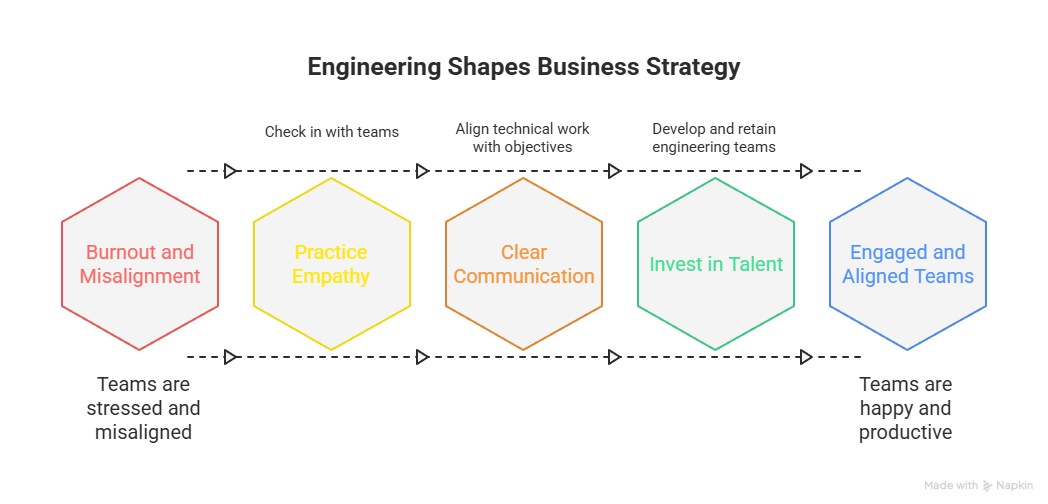
Looking Ahead: Engineering Teams as Strategic Drivers
In my assessment, the engineering management landscape of 2024 reflects an industry undergoing fundamental transformation. As technology continues evolving, the roles, challenges, and opportunities facing engineering teams evolve alongside it.
From addressing burnout to strategically implementing AI, both managers and engineers must adapt while continuing to deliver business value. The encouraging reality? Engineering teams now occupy a central position in shaping organizational strategy, and their contributions have never carried greater significance.
I'm convinced that the organizations that thrive in 2025 will be those that successfully navigate these changes while maintaining focus on their most valuable asset: their people.


